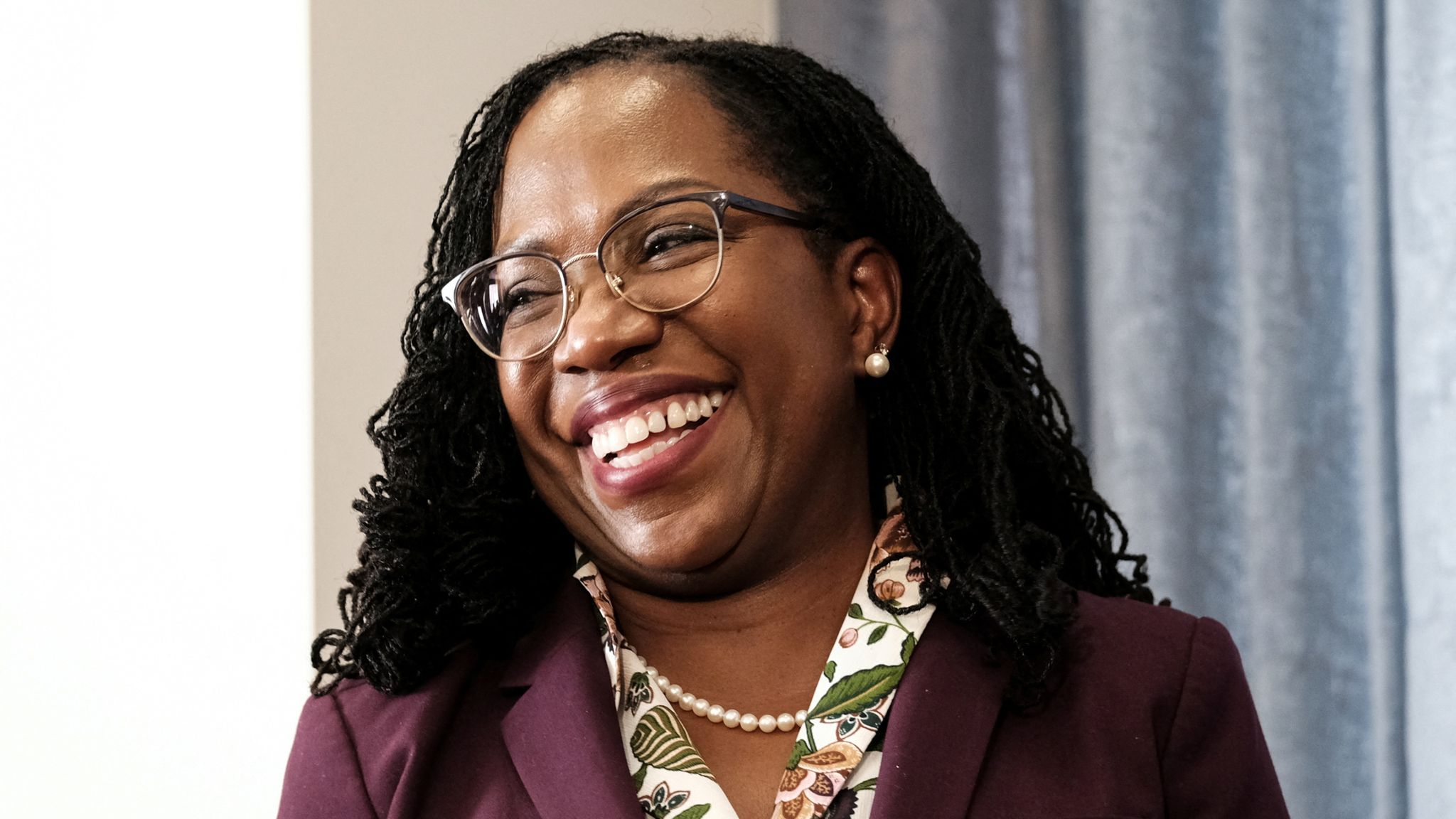Ketanji Brown Jackson confirmed as first black woman to sit on US Supreme Court
Until now, the US Supreme Court has only ever had two black justices in its history - both have been men. But Ketanji Brown Jackon's victory is significant for more than just one reason.

Ketanji Brown Jackson has been confirmed as the first black woman to sit on the US Supreme Court in its 233-year history.
The judge secured the life-time role following a 53-47 vote in the US Senate, following fierce questioning from critics.
Judge Jackson, 51, will also be the first former public defender to sit on the Supreme Court and the third black judge to sit.
The US Supreme Court has only had two black justices - both of which have been men - Thurgood Marshall and Clarence Thomas.
The African-American judge was nominated by US President Joe Biden in February, to replace liberal Justice Stephen Breyer.
Before she joins the bench, the Supreme Court is due to rule in several high-profile cases, including one that could overturn the landmark 1973 decision that legalised abortion nationwide and another that could expand gun rights.
Who is Ketanji Brown Jackson?
Judge Jackson, 51, was born in Washington and raised in Miami.
She graduated from Harvard Law School in 1996 and has distinguished legal experience, studded with Ivy League credentials.
Early in her career, Jackson served as a Supreme Court clerk to liberal Justice Justice Breyer, who retires at the end of this term.
Over the years, she's handled a number of high-profile cases.
In 2021, she was part of a three-judge panel that ruled against Donald Trump's bid to prevent White House records being handed to a committee investigating the Capitol riots.
She's also represented criminal defendants who couldn't afford counsel, including Guantanamo Bay detainees.
Why does her appointment matter?
A seat on the US Supreme Court gives justices the power to often have the final word on highly contentious laws.
Judge Jackson's landmark confirmation is a cause for celebration for the representation of black women in the US's highest federal court.
"I know what it's taken for you to sit in that seat," New Jersey Senator Cory Booker told Jackson during her confirmation hearing, which brought her to tears.
Guy-Uriel Charles, Harvard Law School professor and an expert in race and law, explained how Jackson may impact the court.
He said: "I do think that as a black woman she will bring credibility on issues of race and issues of gender. On issues of race, she might serve as a counterweight to Justice Thomas.
"In particular, I think young black girls will have an even stronger sense that all avenues, especially in law, are open to them."
Winning over conservatives
Judge Jackson is set to replace another liberal justice, meaning her confirmation won't impact the current conservative majority in the court.
During her confirmation hearings, Republican critics took aim at her legal record and were criticised for their questioning.
Texas Senator Ted Cruz grilled Judge Jackson about critical race theory and asked if she thought babies could be racist.
Despite her liberal leanings, she accumulated support from three Republican senators and other conservatives away from Capitol Hill.
Former US Solicitor General Charles Fried told Sky News he backed her because she was the "absolutely ideal nominee".
"She's had life experience, where she's had to fight her way up and succeeded at every stage," he said.
Mr Fried, who has taught at Harvard Law School since 1961, added that her experience as a public defender "lends a very important dimension of perspective to the court".
President Biden nominated Jackson in February, fulfilling his presidential campaign promise to nominate a black woman to the court.
Entering the court aged 51, Judge Jackson will have many years on the bench to make her mark.


